|
|
|
|
|
Copyright British Columbia Real Estate Association. Reprinted with permission."
TAVERNA REAL ESTATE GROUP
BCREA 2024 Second Quarter Housing Forecast
Posted on
April 25, 2024
by
Marie Taverna

Copyright British Columbia Real Estate Association. Reprinted with permission." Canadian Retail Sales (February 2024) - April 24, 2024
Posted on
April 25, 2024
by
Marie Taverna

Copyright British Columbia Real Estate Association. Reprinted with permission." Home Inspection Resources THE ULTIMATE HOMEBUYER’S CHECKLIST
Posted on
April 25, 2024
by
Marie Taverna

Here’s how to start your home buying journey.Buying your first home is a huge milestone. Congratulations! There are so many decisions to make along the way – everything from determining what you can comfortably afford to spend to maintaining your home over the years. In recognition of these important decisions you’ll have to make throughout your time as a homeowner, we’ve created The Ultimate Homebuyer’s Checklist to walk you through every step, ensuring you’re well-prepared and confident in your homebuying decisions. The Ultimate Homebuyer’s Checklist includes the following 10 key steps to helping ensure a smooth transition into homeownership and throughout your homeownership journey: Step 1 – Assess Your Financial Situation
Step 2 – Define Your Home Preferences
Step 3 – Find a Real Estate Agent
Step 4 – Start House Hunting
Step 5 – Make an Offer
Step 6 – Inspect the Property
Step 7 – Secure Financing
Step 8 – Close the Deal
Step 9 – Move and Settle In
Step 10 – Maintain Your Investment
Get The Home Buyer’s Checklist Before Your Buy!To make your homebuying journey even more manageable, we’ve prepared a downloadable PDF version of The Ultimate Homebuyer’s Checklist. Print it out and keep it handy as you embark on this exciting adventure. With this checklist by your side, you’ll be well-prepared to find your dream home and make it your own. Download The Ultimate HomeBuyer’s Checklist HereYour path to homeownership starts here. Happy house hunting! Find an Inspector near you: https://abuyerschoice.com/locationsRecreational property round up: 4 homes currently for sale in Canada’s cottage country markets
Posted on
April 22, 2024
by
Marie Taverna

     With the weather beginning to warm and the days getting longer, the taste of summer is in the air. Many Canadians are looking forward to that first annual trip to the cottage. Perhaps this will be the year you and your family invest in a recreational property all your own… According to the Royal LePage® 2024 Spring Recreational Property Report, the median price of a single-family home in Canada’s recreational regions is forecast to increase 5.0% in 2024 to $678,930, compared to 2023, as a boost in consumer confidence brings sidelined buyers back to the market. All of Canada’s provincial recreational markets are forecast to see an increase in single-family home prices in 2024. Ontario is expected to record the greatest price appreciation, at 8.0%. Looking to buy a cottage or cabin this year? Here are four homes you can purchase in Canada’s recreational property markets today: Quebec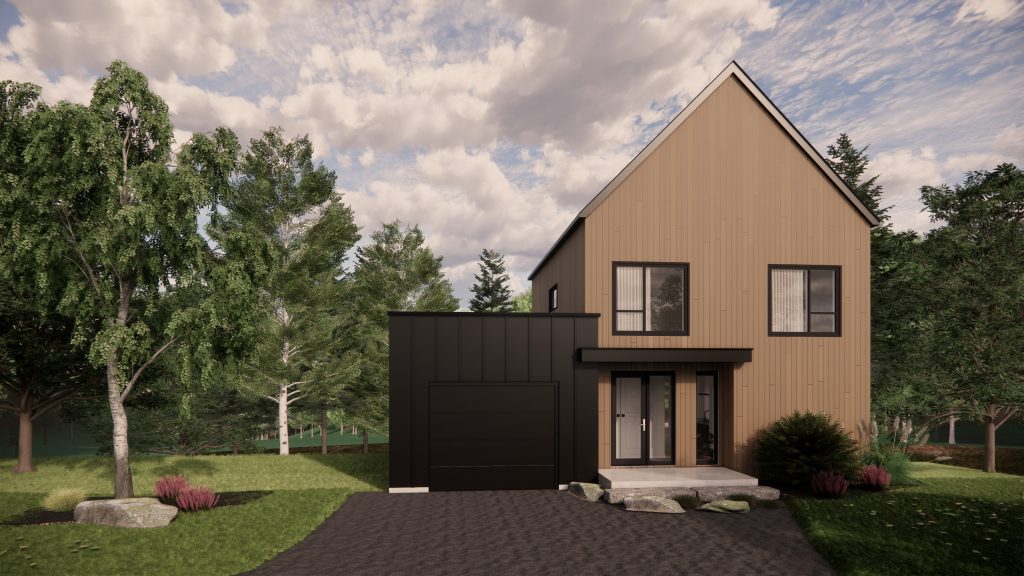 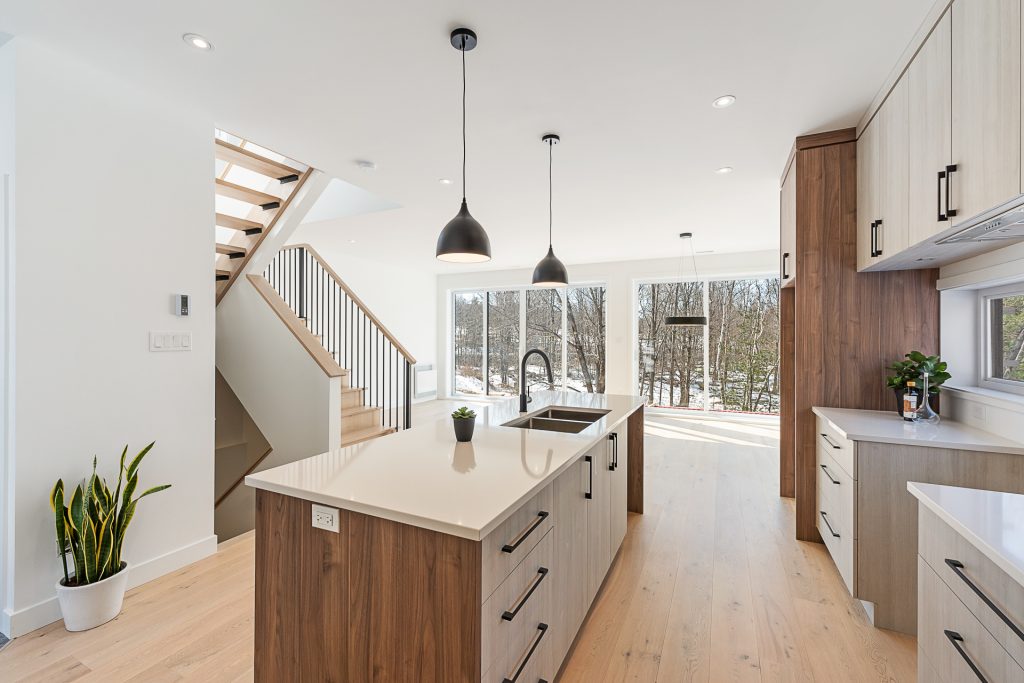 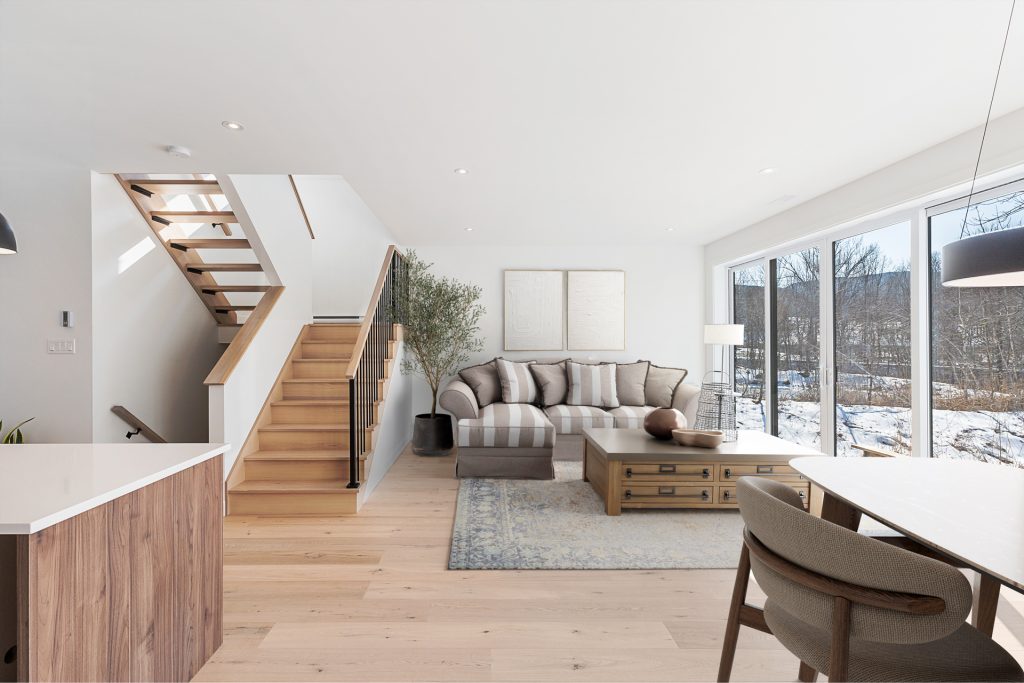 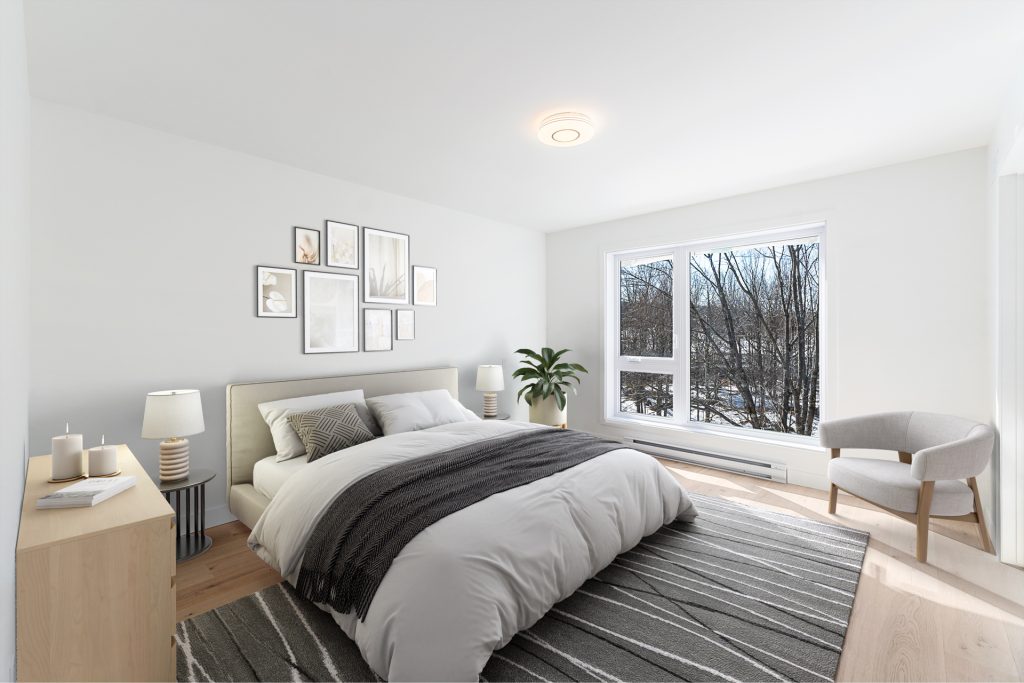
Location: 120 Ch. Parmenter, Sutton List price: $814,900 Size: 2,056 square feet Rooms: 3 bedrooms, 1+1 bathrooms Listing agent(s): Isabelle Gariépy (Residential Real Estate Broker) and Véronique Boucher (Residential Real Estate Broker), Royal LePage Au Sommet Ontario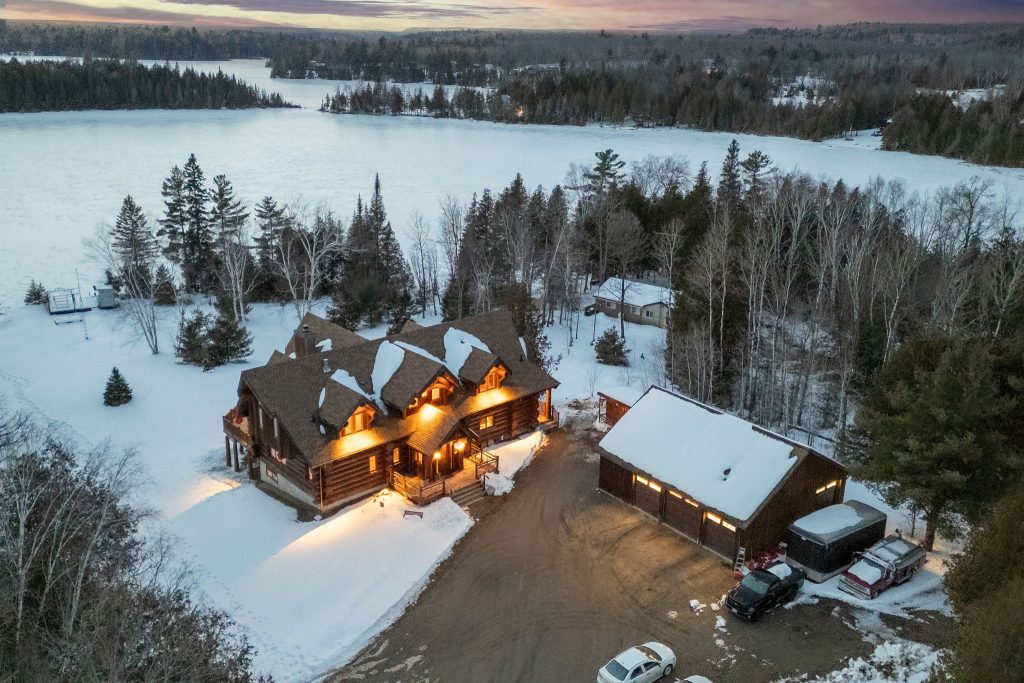   
Location: 5045 Ardoch Road, North Frontenac List price: $1,800,000 Lot size: 3.65 acres Rooms: 4 bedrooms, 3 bathrooms, Listing agent(s): Diana Cassidy-Bush (Sales Representative), Royal LePage ProAlliance Realty Alberta 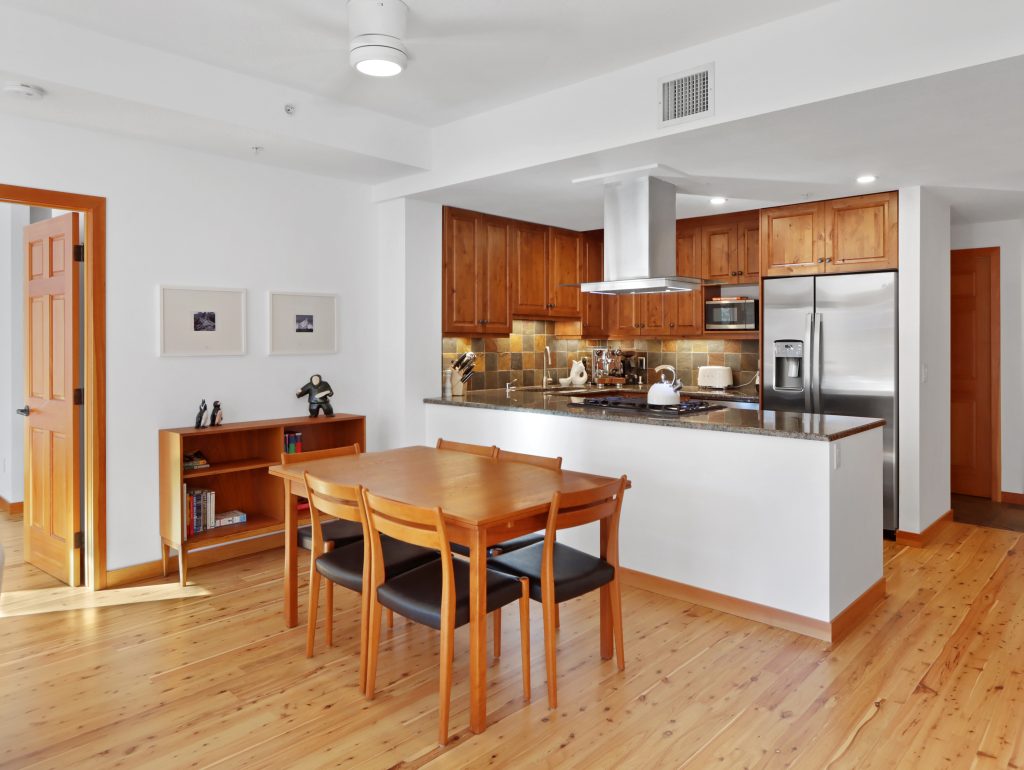 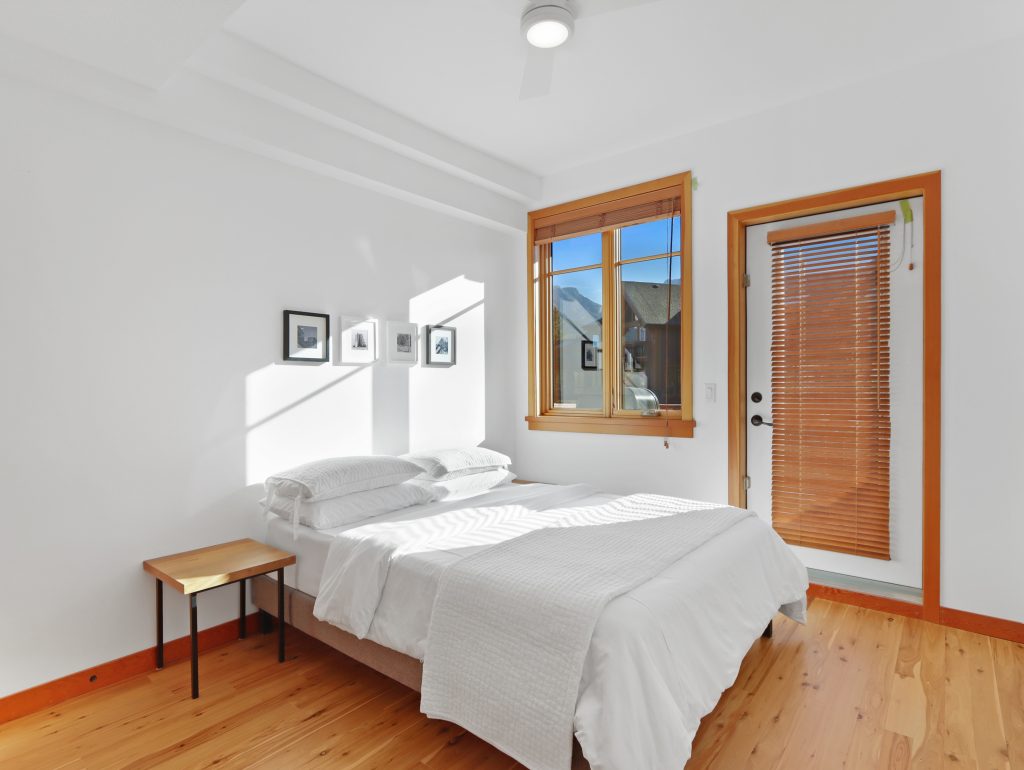 
Location: 304-505 Spring Creek Drive, Canmore List price: $999,000 Size: 1,157 square feet Rooms: 2+0 bedrooms, 2 bathrooms Listing agent(s): Brad Hawker (Associate Broker) and Drew Betts (Associate Broker), Royal LePage Solutions British Columbia 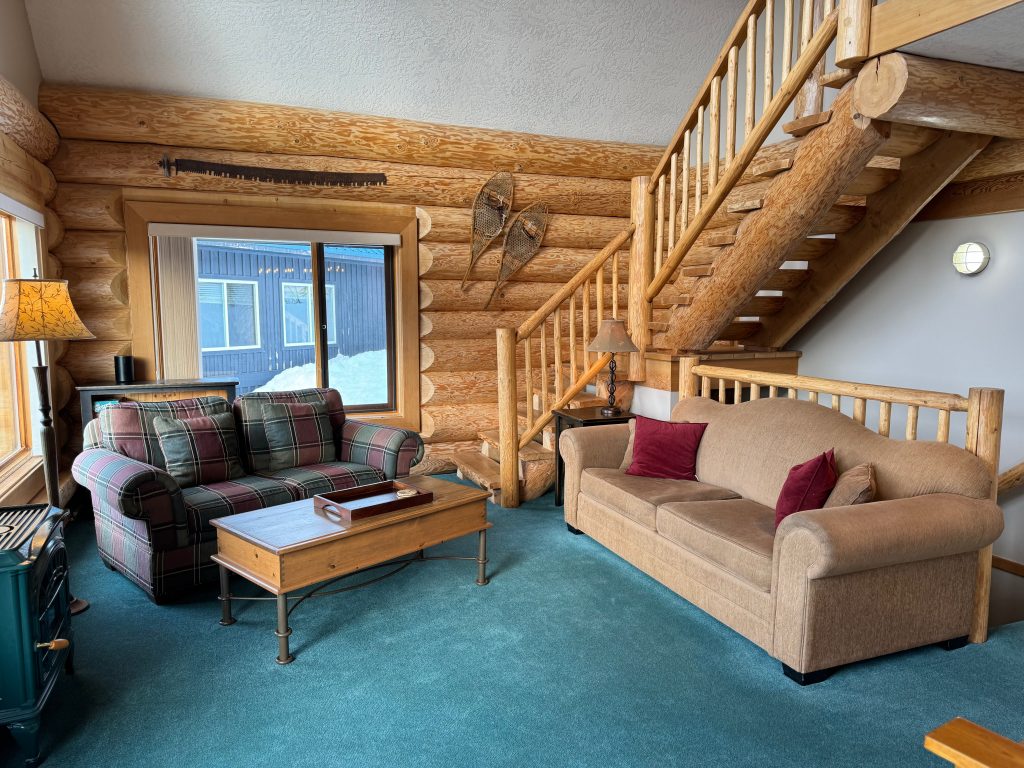 
Location: 1254 Fosters Pl, Courtenay List price: $1,380,000 Size: 2,676 square feet Rooms: 5 bedrooms, 3 bathrooms Listing agent(s): Rick Gibson (Sales Representative) and Felicity Buskard (Sales Associate), Royal LePage In The Comox Valley Want to know more about recreational homes in Canada? Read about the latest market trends and insights in the recently-released Royal LePage® 2024 Spring Recreational Property Report. *Please note that since the time this article was published, the status of the property may have changed 8 new housing policies announced in the 2024 federal budget
Posted on
April 22, 2024
by
Marie Taverna

On Tuesday, April 16th, the Canadian federal government unveiled the 2024 budget. The annual fiscal announcement detailed dozens of new and ongoing initiatives aimed at creating new housing, along with policies targeted at making renting and home ownership more affordable for Canadians. Here are eight standout housing policies announced in this year’s budget: Canadian Renters’ Bill of RightsMore Canadians are renting for longer periods of time before they transition into home ownership. The 2024 budget announced several measures intended to more effectively protect tenants and strengthen their path to buying real estate. Budget 2024 announced the creation of the Canadian Renters’ Bill of Rights, which proposes a nationwide standard lease agreement, and would require landlords to disclose rental price history on properties. Through the Canadian Mortgage Charter, the Budget also calls on banks and lenders to allow tenants to report their rental payment history to credit bureaus in order to better their credit scores, thereby strengthening their future mortgage applications. Additionally, $15 million over five years has been allocated to a Tenant Protection Fund, which will provide legal support to tenants. Funding for the construction of new homesThe federal government is promising billions of dollars in spending towards the construction of new housing. The 2024 budget unveiled the Canada Builds initiative, which will enable the country’s Apartment Construction Loan Program to partner with provincial governments in order to build more rental accommodation. Starting next year, the program will receive $15 billion in additional funding for the creation of 30,000 new homes, topping up the program’s current funding allocation to over $55 billion for a total of 131,000 units, set to be built by 2031. The Canadian Housing and Mortgage Corporation’s (CMHC) Housing Accelerator Fund will also receive $400 million in financial support to build 12,000 new housing units. Infrastructure Canada will receive $6 billion over the next decade towards the Canada Housing Infrastructure Fund, which will support the creation of water and waste infrastructure needed for new communities. $100 million over two years will also be dedicated to Employment and Social Development Canada to support apprenticeship and skilled-trade programs that address the workforce shortage needed to build housing. 30-year mortgage amortizations for first-time buyers of new homesThrough the Canadian Mortgage Charter, the 2024 budget announced that starting on August 1st, first-time buyers purchasing a newly-constructed home can access 30-year mortgage amortizations, a product that has previously only been available to those with a down payment of at least 20%. In practice, a longer amortization period would allow borrowers to pay off their mortgage over an extended timeline, thereby reducing their monthly payments. Amendments to the Home Buyers’ PlanSaving for a down payment is one of the largest hurdles new homebuyers face. To make it easier to access funds for a home purchase, Budget 2024 unveiled an amendment to the withdrawal limit on the Home Buyers’ Plan, which has been increased from $35,000 to $60,000 as of April 16th. Support for single-family home suitesTo encourage the creation of secondary housing units, the 2024 budget announced $409.6 million over four years towards a Canada Secondary Suite Loan Program, run by the CMHC. This will enable homeowners to borrow up to $40,000 in low-interest loans towards the cost of adding a secondary suite to their homes, which can be used for multi-generational living purposes or as a source of rental income. Increase to the inclusion rate on capital gains above $250,000Effective June 25th, Budget 2024 proposes an increase to the inclusion rate on capital gains realized annually above $250,000 by individuals, corporations and trusts from one-half to two-thirds, by amending the Income Tax Act. This would include the sale of secondary residences and investment properties. Currently, only 50% of capital gains are taxable. The 2024 budget would increase the inclusion rate to 66% on capital gains above $250,000. The sale of principal residences will continue to be exempt from capital gains tax. New funds for post-war housing catalogIn December 2023, the federal government announced that it would be modernizing its post-war home design catalog, providing standardized home blueprints that would accelerate the creation of much-needed housing. The 2024 budget unveiled $11.6 million towards the development of 50 home designs, which includes plans for row homes, fourplexes, sixplexes, accessory units and modular homes. Conversion of public lands into housingLand scarcity is one of the main barriers to the creation of new housing. The federal government intends to utilize public lands in order to free up space where new housing can be built, with a goal of building 250,000 new homes by 2031 under the Public Lands for Homes Plan. In Budget 2024, the government announced plans to lease public land to builders in order to lower capital costs, and review the federal lands portfolio to identify more usable lands for housing. The budget also outlines plans to reduce the footprint of federal office buildings, and convert these spaces into housing. Over the next three years, $5 million will be allocated to the Canada Lands Company to support initiatives to build properties on public lands. Want to know more about the 2024 federal budget? You can read the full budget announcement here. CONTRIBUTORMichelle McNallyCommunications manager, Royal LePage Michelle is a member of Royal LePage’s Communications and Public Relations team, and works to deliver unique and insightful Canadian real estate content to media and consumers. Prior to joining Royal LePage, Michelle was an online reporter specializing in Canadian real estate and pre-construction development. She is a graduate of Toronto Metropolitan University’s esteemed journalism program. Pent-up Demand Continues to Build as Sales Remain Slow
Posted on
April 18, 2024
by
Marie Taverna

Royal LePage 2024 House Price Survey
Posted on
April 18, 2024
by
Marie Taverna

| |||||||||||||||||||||||||||||||||||||||||||||||||||||||||||||||||||||||||||||||||||||||||||||||
|
|
|

|
|||||||||||||||
|

There were 5,002 detached, attached and apartment properties newly listed for sale on the Multiple Listing Service® (MLS®) in Metro Vancouver in March 2024. This represents a 15.9 per cent increase compared to the 4,317 properties listed in March 2023. This was 9.5 per cent below the 10-year seasonal average (5,524).
The total number of properties currently listed for sale on the MLS® system in Metro Vancouver is 10,552, a 22.5 per cent increase compared to March 2023 (8,617). This is 6.3 per cent above the 10-year seasonal average (9,923).
Across all detached, attached and apartment property types, the sales-to-active listings ratio for March 2024 is 23.8 per cent. By property type, the ratio is 18.2 per cent for detached homes, 31.3 per cent for attached, and 25.8 per cent for apartments.
Analysis of the historical data suggests downward pressure on home prices occurs when the ratio dips below 12 per cent for a sustained period, while home prices often experience upward pressure when it surpasses 20 per cent over several months.
“Even though the market isn’t quite as hot as it was last year, we’re still seeing modest month-over-month price gains of one to two per cent happening at the aggregate level, which is an interesting dynamic given that borrowing costs remain elevated,” Lis said.
“With the latest inflation numbers trending in the right direction, it remains likely that we’ll see at least one or two modest cuts to the Bank of Canada’s policy rate in 2024, but even if these cuts come, they may not provide the boost to affordability many had been hoping for. As a result, we expect constrained borrowing power to remain a challenging headwind as we move into the summer months.”
The MLS® Home Price Index composite benchmark price for all residential properties in Metro Vancouver is currently $1,196,800. This represents a 4.5 per cent increase over March 2023 and a 1.1 per cent increase compared to February 2024.
Sales of detached homes in March 2024 reached 694, a 5.4 per cent decrease from the 734 detached sales recorded in March 2023. The benchmark price for a detached home is $2,007,900. This represents a 7.4 per cent increase from March 2023 and a 1.8 per cent increase compared to February 2024.
Sales of apartment homes reached 1,207 in March 2024, a 7.9 per cent decrease compared to the 1,311 sales in March 2023. The benchmark price of an apartment home is $777,500. This represents a 5.7 per cent increase from March 2023 and a 0.9 per cent increase compared to February 2024.
Attached home sales in March 2024 totalled 495, a 6.2 per cent increase compared to the 466 sales in March 2023. The benchmark price of a townhouse is $1,112,800. This represents a 5 per cent increase from March 2023 and a 1.7 per cent increase compared to February 2024.
1 Areas covered by Greater Vancouver REALTORS® include: Bowen Island, Burnaby, Coquitlam, Maple Ridge, New Westminster, North Vancouver, Pitt Meadows, Port Coquitlam, Port Moody, Richmond, South Delta, Squamish, Sunshine Coast, Vancouver, West Vancouver, and Whistler.

|
|
|
|
|

In its third interest rate announcement for 2024, the Bank of Canada chose to hold its overnight lending rate at its current level of 5%. This marks the sixth consecutive hold to the rate since July of 2023.
In its scheduled interest rate announcement for April 10th, Canada’s central bank stated that it would hold the policy rate at 5% in an effort to “continue to normalize the Bank’s balance sheet.”
The Central Bank noted that while the consumer price index and core inflation have eased in recent months, overall inflation and economic risks remain. The Bank said that it will be looking out for evidence that the downward trend in inflation is sustained before moving to make a cut.
Tiff Macklem, Governor of the Bank of Canada, stated in a press conference following the announcement that the Bank does not wish to leave monetary policy this restrictive for longer than its needs to, but cautioned that lowering the policy rate prematurely could jeopardize the progress made to bringing inflation down.
“Based on our forecast and the risks, Governing Council decided it was appropriate to maintain the policy rate at 5%,” said Macklem. “We also concluded that, overall, the data since January have increased our confidence that inflation will continue to come down gradually even as economic activity strengthens. Our key indicators of inflation have all moved in the right direction and recent data point to a pickup in economic growth.”
Economists expect that the first chop to rates could come in June. As many as 100 basis points could be cut from the key lending rate this year, experts predict.
Macklem noted that while the Bank is seeing economic factors trend in the right direction for a rate cut, more time is needed to ensure inflation is truly coming under control.
“I realize that what most Canadians want to know is when we will lower our policy interest rate. What do we need to see to be convinced it’s time to cut? The short answer is we are seeing what we need to see, but we need to see it for longer to be confident that progress toward price stability will be sustained,” said Macklam. “The further decline we’ve seen in core inflation is very recent. We need to be assured this is not just a temporary dip.”
The Bank of Canada will make its next announcement on Wednesday, June 5th, 2024.
Read the full April 10th report here.

Spring is normally the most active period for Canada’s real estate market – the arrival of warmer weather triggers an increase in buying and selling activity across the country. In 2024, the traditionally-busy spring market kicked off early and is facing additional pressure, as homebuyer hopefuls who have been sitting on the sidelines jump back into the market ahead of anticipated interest rate cuts, and the tight competition and higher home prices that will inevitably follow.
Royal LePage® is forecasting that the aggregate1 price of a home in Canada will increase 9.0% in the fourth quarter of 2024, compared to the same period last year. Based on stronger-than-expected first quarter results, the previous forecast has been upgraded nationally and in most major markets.
“Consistent with our previous forecast, the market did reach a critical tipping point in the first quarter of 2024, when home prices bottomed out and began to appreciate again. Clearly, more and more buyers are motivated by the need to get ahead of rising home prices, rather than adopting the strategy of waiting for mortgage rates to fall,” said Phil Soper, president and CEO, Royal LePage.
According to the Royal LePage House Price Survey, the aggregate price of a home in Canada increased 4.3% year over year to $812,100 in the first quarter of 2024. On a quarter-over-quarter basis, the national aggregate home price increased 2.9%, an indication that sidelined buyers are rebooting their real estate purchase plans ahead of expected interest rate cuts, as predicted in January.
When broken out by housing type, the national median price of a single-family detached home increased 4.5% year over year to $845,300, while the median price of a condominium increased 3.5% year over year to $591,900.
The aggregate price of a home in the greater regions of Toronto and Montreal are forecast to increase 10.0% and 8.5% year over year, respectively, in the fourth quarter of 2024, outpacing price gains in the city of Calgary, which was previously expected to see the greatest increase in home values this year.
“Last year, while property values dipped in most markets across the country, the Calgary real estate market bucked the trend and continued to record home price gains. While activity levels remain strong and prices continue to rise in Alberta, our research indicates that buyer demand, relative to available inventory, is strongest in the two largest urban centres in the country. We now expect Toronto and Montreal to log the highest home price appreciation this year,” added Soper.
This sustained price appreciation is expected to close the gap between the country’s two most expensive real estate markets, Toronto and Vancouver. While Vancouver remains the nation’s most expensive market today, Royal LePage predicts that the aggregate price of a home in the GTA will surpass Greater Vancouver in the second half of 2024.
Within the first months of the new year, the Canadian housing market has already recorded solid price appreciation and higher sales activity. Starting in July of 2023, the Bank of Canada has held rates steady through six review periods. This has prompted many homebuyers to come off of the sidelines in advance of what they expect will be a more competitive spring market that will drive home prices higher.
“Given the strong start to 2024, the cadence of the market for the balance of the year points to a normally busy spring market that will lead into an uncomfortably busy fall. It is clear we are rapidly transitioning away from a buyers’ market and back to an environment where the seller has the upper hand,” noted Soper.
Read Royal LePage’s first quarter release for national and regional insights.

The five per cent Goods and Services Tax (GST) applies to the purchase price of new residential homes in BC, including:
If your client buys a new home, they'll pay the five per cent GST at completion, as per the contract of purchase and sale. The home can be fee simple or on leased land.
First Nations may charge their own GST. For example, the Tsawwassen First Nations levies a First Nations GST.
Property that has already been used for residential purposes is GST exempt. The GST should've been paid when the property was new.
If your client buys a newly built residential property, the builder must collect and remit the GST on the sale. The buyer then applies for a GST rebate. The buyer should keep all paperwork that proves the GST has been paid in case there's a question later.
Your client may be eligible for a GST rebate under these circumstances:
If your client buys a home and tears it down or substantially renovates and rebuilds it, they must pay the GST because the home is considered to be a new home for GST purposes. The owner is considered a “builder” who has repurchased the new home at its fair-market value. The owner must self-assess the GST and remit it to the CRA when construction is completed. The owner may be eligible for a GST rebate.
The five per cent GST is due when ownership and possession take place.
Under a presale agreement, the GST on the deposit amount isn’t payable when the deposit is made. Instead, the buyer pays the full amount of GST owing when the deal completes and they take ownership and possession.
However, under a presale agreement, if the buyer makes partial payments following the deposit, but before ownership and possession occur, the buyer must pay GST on each partial payment to the builder. When the deal completes and they take ownership and possession, the buyer pays the remaining amount of the GST.
GST is applicable on all assignment sales of new or substantially renovated homes. Previously, an assignor may not have paid the GST on the assignment amount if they intended to reside in the property as their principal residence. However, under new rules, the GST is now payable by the assignor on any assignment amount.
The assignor is required to pay GST on the assignment amount, commonly called the lift.
GST isn't payable by the assignor on the total purchase price as the developer received the GST on the original purchase price portion and will be required to remit that.
GST is also not payable on the return of the deposit amount as this amount isn't income.
For an example, let’s look at a residential pre-sale with an original purchase price of $800,000 and an assignment purchase price of $900,000, between a developer (who's a GST registrant) and an assignor and buyer who aren't GST registrants.
The buyer/assignee would pay:
The assignor would receive:
The assignor, following receipt of the assignment amount (which will include both the GST and Income Tax portions payable), will need to engage an accounting firm to make this payment to Canada Revenue Agency (CRA) within 30 days of the completion date of the transaction.
The five per cent GST is applied to the sale of vacant land if:
There are three types of manufactured buildings:
If your client buys a newly constructed or substantially renovated mobile home or floating home, they'll pay the five per cent GST and can claim applicable rebates.
When leasing a new manufactured building, the GST applies only to the lease of a new manufactured portable building used for commercial use.
If your client buys or leases a used manufactured building for residential use, the GST doesn't apply to the sale.
However, if your client purchases or leases a used manufactured building for commercial use, then the GST does apply.
If your client bought shares in a co-operative housing complex for use as a primary residence, your client may qualify for a GST rebate.
Vacation property is property bought by an individual for personal use, short-term rental use (less than one month), or a combination of these two.
Vacation property includes detached and semi-detached houses, rowhouses and townhouses, and condominiums.
Generally, if your client buys a new vacation property, they’ll be required to pay the GST if the property is not used primarily (more than 50 per cent) as the vendor's primary residence and all or substantially all (90 per cent or more) of the rentals of the property are for periods of less than 60 days.
If your client plans to buy a vacation property and rent it as a short-term rental, they must register for the GST and get professional tax advice.
Read: The GST/HST and the Purchase, use and Sale of Vacation Properties by Individuals.
Commercial properties are subject to the GST.
Residential property exempt from the GST includes:
The removal of GST will apply to new purpose-built rental housing, such as apartment buildings, student housing, and senior residences built specifically for long-term rental accommodation.
The GST Rental Rebate increases to 100 per cent from 36 per cent and removes the existing GST Rental Rebate phase-out thresholds for purpose-built rental housing projects. The enhanced GST Rental Rebate applies to projects that began construction on or after September 14, 2023, and on or before December 31, 2030, and complete construction by December 31, 2035.
The GST is applied to REALTOR® commissions and fees.
The standard multiple listing contract advises that the commission or fee is payable on the earlier of the following:
If you have questions, contact the GST office at 1-800-959-5525.
The seven per cent Provincial Sales Tax (PST) doesn’t apply to sales of real property. The PST applies to construction inputs are used to construct or improve real property.
The PST doesn’t apply to Realtor commissions and fees. PST does apply to legal and notary fees.

The BC NDP government has followed through on a February 2024 budget promise and introduced legislation to tax home flipping, beginning in 2025.
Bill 15 2024: Budget measures implementation (Residential Property (Short-term holding) Profit Tax) Act, known as the home flipping tax, applies to income from the sale of a property, including presale contracts, in BC if the property was owned for less than 730 days.
The tax will apply to income earned from the sale of:
If your client enters into a presale contract to buy a property under development, and buys the property – they close on the property once it is complete, for the purposes of the two-year window of the tax – they’ll be considered to have acquired it on the date they entered into the presale contract.
If your client is assigned a pre-sale contract and then closes on the built property, the acquisition date is the date they were assigned the contract.
When your client assigns a presale contract to another person within two years of entering into the presale contract, they’ll pay tax on any income received from the assignment.
The tax applies to:
The tax is:
The tax is effective on January 1, 2025. Residential property bought before this date may be subject to the tax if sold on or after January 1, 2025 and owned for less than 730 days unless an exemption applies.
For example:
The property seller may be a BC resident or a resident anywhere else in the world.
There are exemptions for:
The tax doesn’t apply to Indigenous Nations, charities, governments and government-owned corporations, and non-profits.
If your client sells their primary residence and they owned the property for less than 730 days, they may qualify for a deduction of up to $20,000 from their taxable income if:
If your client sells a portion of their interest in the property, their primary residence deduction amount will be proportionate to that interest.
The Ministry of Finance has provided more details on their website, including how the tax is calculated and additional examples related to pre-sales.
Note: the BC home flipping tax is NOT the federal property flipping rule, which is a separate federal tax.

|
|||||

|
| And, who knows what the market will be like later in the year? The good news is, you can sell your home, even if you’re busy. There are plenty of ways to reduce the time, effort and stress involved. The first step is to find out what needs to be done. Make a list. Turn that list into a plan and get that plan down on paper. That way, the process won’t just live in your imagination — where it might seem much bigger and more intimidating than it really is. Instead, it will be realistic and practical. The next step is to see what can be done by others. If your schedule is already hectic, you want to minimize what you do on your own and outsource where possible. For example, you could hire a cleaning company, junk removal service, professional stager, and/or tradesperson. Of course, you’ll need to weigh that expense against the time you’d save, but it is often worth it. Staying organized is also essential. When you’re busy, effective organization tools — to-do lists, calendar, scheduling app, etc. — will be your best friends. The more organized you are, the more you’ll feel on top of things. Finally, get talking to professionals who are going to be able to help you — and even shoulder some of the heavy lifting. The bottom line? Don’t let being “crazy-busy” prevent you from taking advantage of the opportunity to sell your home. |

|
|
But, how do you decide whether to invest in fixing or improving something versus just leaving it as is?
Once you have those answers, you’ll be in a much better position to make that decision. |

In an effort to increase the supply of long-term residential housing, the BC Government has introduced the Short-Term Rental Accommodations Act) which will have substantive effects on many individual homeowners.
In brief, the legislative changes include:
These rules exclude hotels, motels, strata hotels, timeshares, fishing lodges, First Nations reserve lands, and modern treaty lands (unless those First Nations opt in).
Importantly, the new rules serve as a baseline for the province, but they do not supplant stricter municipal restrictions; for example, the City of Kelowna has recently removed short-term rentals as a secondary use for all zones.
The new legislation will affect real estate across British Columbia. Here are some common questions from REALTORS® across the province:
Q: How do we advise clients who currently own short-term rental accommodations?
A: Clients should be aware that the new provincial Short-Term Rental Accommodations Act will come into force as of May 1, 2024. This Act is in addition to any municipal rules and strata bylaws that already apply. Clients should examine whether their use complies with the new law.
Q: I have a listing in a small or resort municipality; how do I know if the new short-term rental accommodations principal residence requirement applies here?
A: There are several exemptions: small and resort municipalities, mountain resort and electoral areas (including the Gulf Islands), and most municipalities with a population under 10,000 people (except those adjacent to larger municipalities; e.g., Highlands, Belcarra, Anmore, Qualicum Beach, Peachland). Small exempt municipalities, which are initially exempt from the principal residence requirement in the legislation, may opt in. Realtors should check the list of included and exempted municipalities as part of their due diligence (see the full list here).
Q: How do I advise buyers looking to purchase short-term rental accommodations?
A: The current housing shortage in British Columbia is prompting governments at all levels to respond in various ways. Clients should be aware that laws are constantly changing, and current permitted uses may change. Buyers looking to purchase short-term accommodations should be aware that a number of laws have been recently amended to address the housing shortage, including local bylaws, provincial laws (e.g., Short-Term Rental Accommodations Act, Speculation and Vacancy Tax, etc.), and federal laws (e.g., Foreign Buyers Ban, Underused Housing Tax, etc.), which may affect their intended and future uses. REALTORS® should draft specific subject conditions to allow buyers to do the legal due diligence necessary to determine if the target property will support short-term rental use.
Q: One of my clients purchased a pre-sale condo and intends to use it for short-term rentals. With the introduction of the legislation, do they now have a new right of rescission for a material change after their initial 7-day recission right has passed?
A: This will depend on the nature of the pre-sale condo development, the contract, and the disclosure statement applicable for that unit. Developers are required to provide continuous and accurate disclosure, and affected buyers should be advised to seek immediate legal advice specific to their situation.
Q: If I am listing a property that is currently a short-term rental, do I need to disclose the change in the law?
A: The change in law has been published and advertised by the government; therefore, this would not be considered to be a material latent defect and would not require separate Rule 59 disclosure. There may be practical reasons that a REALTOR® and a client may choose to provide this as prudent additional disclosure (for example, to ensure a smooth closing); however, this should only be done with your client's specific direction.
Q: A local strata building wants to petition the mayor to “opt-out” of these provisions. Are they able to do so?
A: While the legislation has “opt-out” mechanisms for local government where the rental vacancy rate is 3 per cent or higher for two or more years, these provisions are limited and only apply to a geographic area, not a specific building or parcel. There is no mechanism in the legislation for a single property or building to be exempted, even if the local government desires this.
These legislative changes will affect buyers, sellers, strata corporations, and developers differently depending on each client's unique circumstances. As these are general guidelines only, REALTORS should ensure that their clients obtain legal advice specific to their respective clients' circumstances.
More information on how these changes affect BC's real estate is available from BCREA and BC Financial Services Authority.
Without limiting the Terms of Use applicable to your use of BCREA's website and the information contained thereon, the information contained in BCREA’s Legally Speaking publications is prepared by external third-party contributors and provided for general informational purposes only. The information in BCREA’s Legally Speaking publications should not be considered legal advice, and BCREA does not intend for it to amount to advice on which you should rely. You should not, in any circumstances, rely on the legal information without first consulting with your lawyer about its accuracy and applicability. BCREA makes no representation about and has no responsibility to you or any other person for the accuracy, reliability or timeliness of the information supplied by any external third-party contributors.

|
|
|
|
|
Let's discuss your next home sale or purchase, with no obligation.
Give us a call at 604-802-7759
